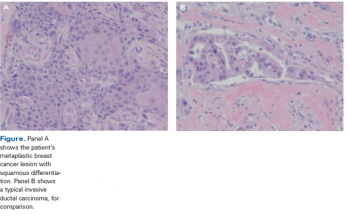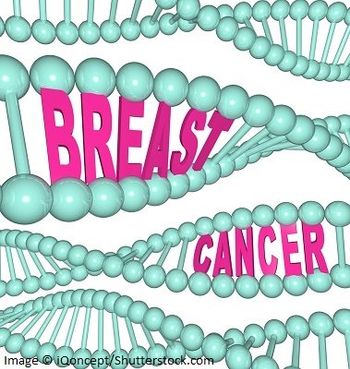
Pooling data from four large studies of African American women, researchers found that vigorous exercise for 2 hours or more per week could reduce the risk of ER-positive breast cancer.

Your AI-Trained Oncology Knowledge Connection!


Pooling data from four large studies of African American women, researchers found that vigorous exercise for 2 hours or more per week could reduce the risk of ER-positive breast cancer.

Using updated FISH guidelines yields more women with breast cancer who may be eligible for HER2-directed therapy.

A new study has found that negative expectations increase both the severity and number of side effects experienced by breast cancer patients undergoing hormone therapy.

Using a 70-gene signature test could identify many women with early-stage breast cancer considered to be at high clinical risk who do not actually need chemotherapy.

Breast density and breast cancer risk can help guide mammography screening recommendations for women older than age 50 years.

Three medical organizations including ASCO have issued a guideline on margins in breast conserving surgery for patients with ductal carcinoma in situ.

Bone metastases are common in advanced breast cancer, and may be associated with serious morbidity, including fractures, pain, nerve compression, and hypercalcemia. Through optimum multidisciplinary management and the use of bone-targeted treatments, patients with advanced breast cancer have experienced a major reduction in skeletal complications, less bone pain, and an improved quality of life.

It is quite obvious that bone morbidity has a negative impact on our patients with breast cancer. The use of bone-modifying agents in this setting can yield significant quality-of-life benefits.

Women with ER-positive metastatic breast cancer previously treated with an aromatase inhibitor have worse survival outcomes if their tumor harbors one of two estrogen receptor mutations.

The FDA has granted Breakthrough Therapy Designation to Novartis for ribociclib (LEE011), in combination with letrozole (Femara), for treating hormone receptor-positive, human epidermal growth factor receptor 2-negative (HR+/HER2-) advanced or metastatic breast cancer.

Epstein-Barr Virus might increase the risk of breast cancer, according to experiments with cell lines and mouse xenografts that identified a potential mechanism for the suspected link.

Researchers found that expression of the vitamin D receptor protein may help protect against aggressive forms of breast cancer.

A recent study found that radiologists differ in their interpretation of whether a woman has dense breasts based on mammography.

Results from a long-term study indicated that undergoing fertility treatment with in vitro fertilization did not increase women’s risk for breast cancer compared with women in the general population.

A triplet regimen including paclitaxel, capecitabine, and bevacizumab showed efficacy and safety in women with advanced triple-negative breast cancer.

A meta-analysis found that a Mediterranean diet with no limits on fat intake may reduce the incidence of breast cancer, as well as several other outcomes, compared to other diets.

Adding neratinib to standard paclitaxel chemotherapy appears to be associated with a better pathological complete response rate than chemotherapy plus trastuzumab.

Acupressure, a technique derived from acupuncture, helped improve sleep and relieved chronic fatigue experienced by women treated for breast cancer.

A 40-year-old woman noted a large mass in her right breast. A diagnostic mammogram and ultrasound confirmed a 3.4-cm mass with associated microcalcifications.

Researchers from the University of Michigan have developed new technology to separate aggressive stage 0 breast cancer from nonaggressive forms.

The combination of everolimus and exemestane was deemed generally tolerable with a manageable safety profile in women with advanced HR-positive/HER2-negative breast cancer.

Results of two studies taken from the I-SPY 2 trial showed that the use of adaptive randomization in a phase II trial was able to successfully identify agents that would be most effective at treating certain molecular subtypes of breast cancer

Researchers have uncovered a potential role of the bacteria found within breast tissue in the prevention and progression of breast cancer.

About 1 in every 5 older women who underwent treatment for early-stage breast cancer experienced a functional decline and/or died within 1 year of initiating treatment.

Researchers at Mount Sinai have made a crucial discovery in breast cancer by identifying a protein called CBX8, which promotes tumor growth.